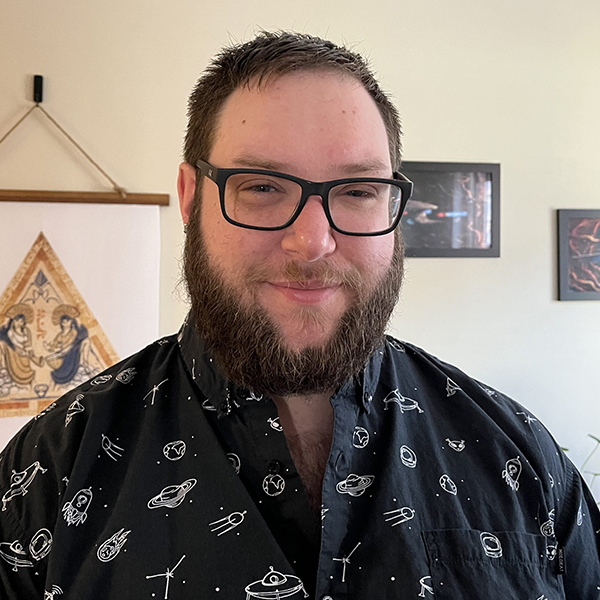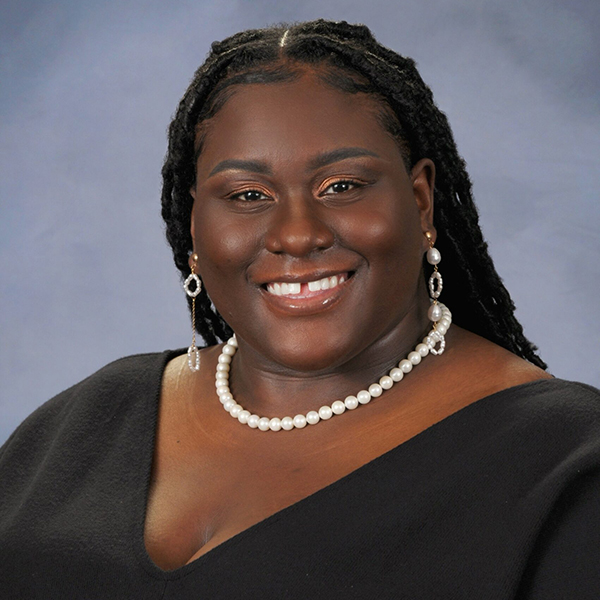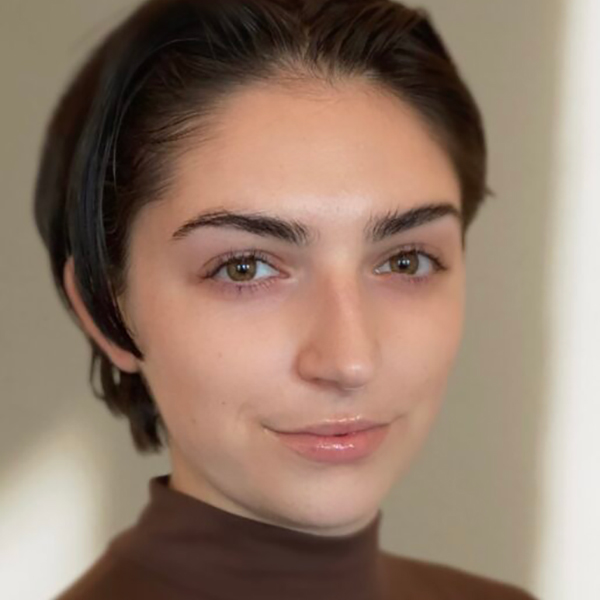BU Fulbright Scholars: A Record-Breaking Year
15 recipients will conduct research or teach English in 13 countries, among them Turkey, Brazil, and Vietnam
BU Fulbright Scholars: A Record-Breaking Year
15 recipients will conduct research or teach English in 13 countries, among them Turkey, Brazil, and Vietnam
Wealthy Mediterranean gourmands living in the Roman Empire left behind cookbooks and texts that describe using spices to flavor food and wine, as medicine, and even as aphrodisiacs. But were ordinary Greeks and Romans using spices in the same way?

Next spring, newly minted Fulbright fellow Evan McDuff (GRS’25) will travel to Israel to find out. McDuff (who uses they pronouns) will extract phytoliths, which are microscopic silica bodies produced by many plants, to detect the remains of spices left on unearthed ancient cooking vessels. They believe that identifying these spices will help illuminate culinary practices across social groups in the Roman Empire, and hope their research will shed light on the history of what was essential goods in one of the world’s earliest globalized economies and transcontinental trading networks.
McDuff is one of this year’s 15 Fulbright grantees from BU, a record high for the University and a “significant jump” from last year’s 11 awardees, according to Jeffrey Berg, Office of the Provost director of national and international scholarships. The awards went to seniors, graduate students, and recent alumni in several schools and colleges, among them the Pardee School of Global Studies, Sargent College of Health & Rehabilitation Sciences, Wheelock College of Education & Human Development, and the College of Fine Arts. The recipients will travel to 13 countries, including Turkey, Brazil, Sweden, and Vietnam.
As the US government’s flagship international educational exchange program, the Fulbright US Student Program provides grants for individual research, arts projects, graduate degree programs, and those teaching English. Awardees are chosen on the basis of their academic merit and leadership potential.
“The Fulbright program is extremely well suited to BU, as our institution deeply values the diversity of perspectives and backgrounds and understandings, and provides lots of opportunities for our community to engage in dialogue and collaboration,” Berg says. “And that’s perfectly aligned with Fulbright’s core mission of fostering increased mutual understanding.”

In January, Fulbright winner Kahjirah Taylor-Harris (CAS’22) will travel to South Korea to be an English teaching assistant working with elementary school students. As a first-generation college student and BU Posse Scholar, Taylor-Harris says, she is passionate about improving access to a quality education. “I am a strong believer in the idea that education can help me shatter the cultural and communication barriers between people and dismantle disparities within education itself,” she says. Through her teaching assistantship, Taylor-Harris hopes to gain better insight into how South Korea’s expansion of public education reform impacts the education of students in the world’s most educated country and how such reform can support and improve equality and equity in the US education curriculum and better Black and brown student achievement.

Painter Leyla Tonak (CFA’18, Kilachand’18), another of this year’s grantees, will study the current femicide epidemic in Turkey through the lens of visual art. “Through a series of interviews, I will be exploring how contemporary Turkish artists—in particular women and genderqueer artists—are responding to the epidemic and to larger questions about the gender order in Turkey,” she says. During her time abroad, Tonak also plans to create her own works and lead painting and drawing workshops at Mor Çatı Women’s Shelter (the only independent women’s shelter active in Turkey), with the ultimate goal of combining images of artworks from the workshops, her studio, and the artist interviews into a zine format that will include resources and research on femicide in Turkey. Tonak’s father’s family is Turkish, and she says that she’s looking forward to traveling to other parts of Turkey and the Middle East as well as researching her family tree during her free time.
Berg says he’d wondered if people would still apply to the program amid a global pandemic. In fact, BU saw a record number of applicants. For the 2022 Fulbright cycle, 66 seniors, graduate students, and recent alumni applied, and 37 were chosen as finalists. The US State Department recently designated BU among its national top-producing institutions for the second year in a row.
Students and recent alums interested in applying for a Fulbright have until October 11 to complete the national application, but BU’s internal deadline is August 10. Applicants must be US citizens. Berg says his office is available to help those applying, from crafting a strong personal statement to reviewing applications for typos. “We have an amazing faculty Fulbright committee made up of senior administrators, many of whom are Fulbrighters themselves,” he says. “They appreciate the program’s mission and objectives and broader elements.”
The application asks program hopefuls to reflect on their past experiences, studies, professional and extracurricular pursuits, motivations, and longer-term goals, “and results in a stronger sense of self, a chance to connect the dots between past, present, and future,” Berg says. Applicants should also be able to write persuasively about how the opportunity to spend nine months abroad would enrich their lives.
Berg says the Fulbright is one of the most respected and widely recognized programs in the world—since its founding in 1946, the Fulbright program has produced 40 heads of state or government, 61 Nobel laureates, 89 Pulitzer Prize winners, and 76 MacArthur Fellows. “It was created in the wake of World War II with this goal of fostering deeper cultural understanding, appreciation, and exchange, with the hope of avoiding a future global conflict of that nature,” he says. “I think that’s a mission that’s still pressing and just as important today.”
Interested in applying for a 2023-2024 Fulbright fellowship? BU’s internal application deadline is August 10; find information on how to apply here.

Comments & Discussion
Boston University moderates comments to facilitate an informed, substantive, civil conversation. Abusive, profane, self-promotional, misleading, incoherent or off-topic comments will be rejected. Moderators are staffed during regular business hours (EST) and can only accept comments written in English. Statistics or facts must include a citation or a link to the citation.